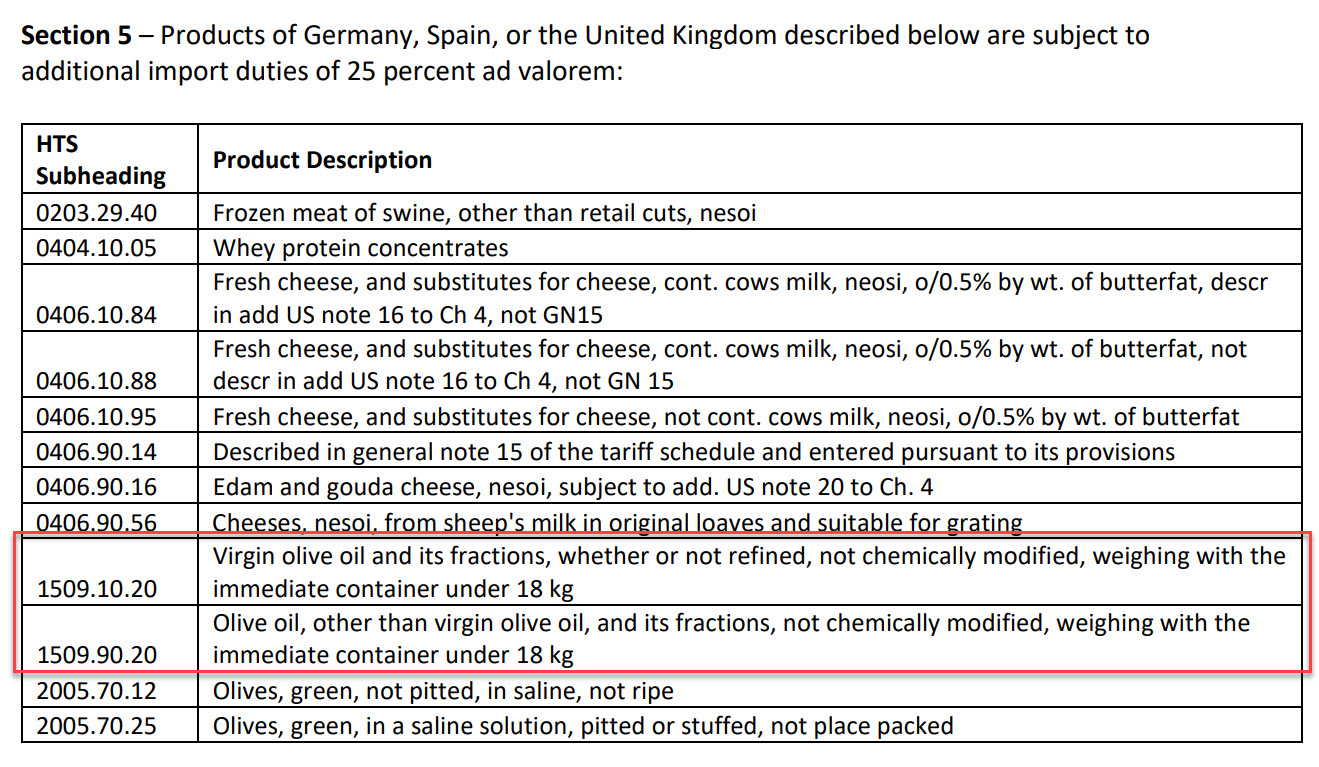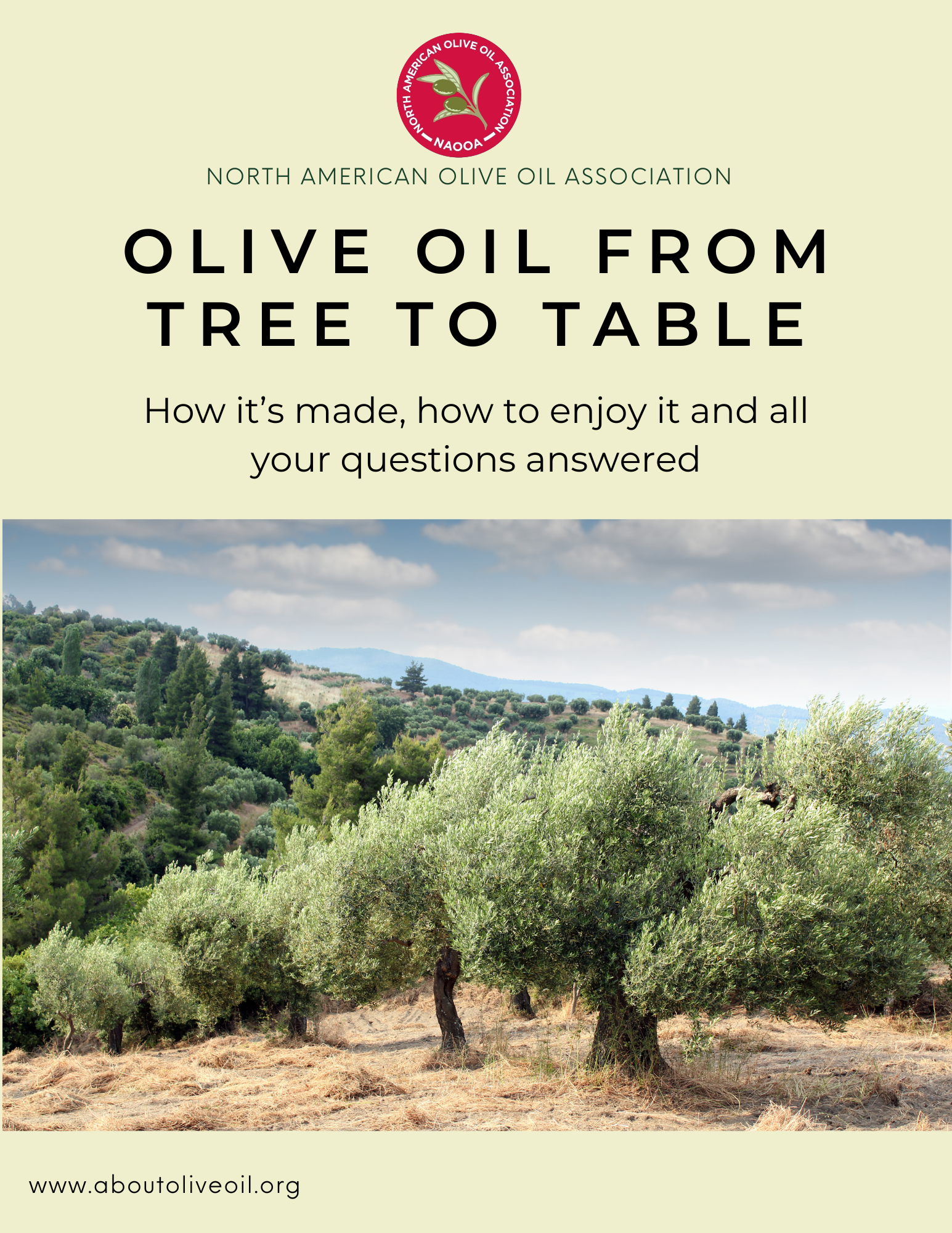This article was originally published on October 3, 2019
On October 2, the World Trade Organization announced that the U.S. would be authorized to impose countermeasures against Europe amounting to $7.5 billion in connection with the Airbus case. Later in the day, the United States Trade Representative announced its list of products that will be hit with tariffs. It is a case of good news, bad news.
First the good news. Thanks to the voices raised by those who signed the NAOOA petition opposing olive oil tariffs, as well as the efforts the NAOOA made in advocating to the United States Trade Representative (USTR) and Congress, the USTR announced that the retaliatory tariffs will be substantially less than originally proposed. Instead of impacting all olive oils from Europe, the tariffs will affect only olive oil from Spain, and only in retail size packaging. And instead of the threatened 100% tariffs, the rate to be applied will be 25%. According to a source quoted in The Washington Examiner, “White House officials . . . said the administration decided on lower rates in response to public comments about its tariff proposals.” So clearly, our voices have been heard.
The bad news is that any tariffs on olive oils from Europe are harmful to American consumers. Americans should not be asked to pay higher prices for products that are important to maintaining healthy eating patterns, and for which there is insufficient supply of domestic alternatives. The NAOOA will continue its efforts to have olive oils from all countries, and in all package sizes, removed from the list. We are hopeful that the USTR decision to go with lower tariff rates of 25% is an indication of a good-faith willingness to negotiate a settlement with the E.U., and the NAOOA will do what it can to facilitate such a result.
The tariffs are the result of a ruling by The World Trade Organization in response to a 15-year old trade dispute concerning subsidies to Airbus. The WTO will rule on a companion case against subsidies to Boeing, also deemed illegal, early next year, at which point the European Union will be authorized to strike back with tariffs of its own, and will therefore increase the likelihood of a negotiated settlement.
Cecilia Malmstrom, the European commissioner for trade, stated today that even though the United States had obtained WTO permission to levy tariffs, “opting for applying countermeasures now would be shortsighted and counterproductive.” “Both the EU and the U.S. have been found at fault by the WTO dispute settlement system,” she said. “The mutual imposition of countermeasures, however, would only inflict damage on businesses and citizens on both sides of the Atlantic.”
It is also important to note that although the list is labeled as final, the definitive list may be determined by amendments and will be published in a Federal Register notice. And in a press release, the USTR noted that "[t]he U.S. has the authority to increase the tariffs at any time, or change the products affected. USTR will continually re-evaluate these tariffs based on our discussions with the EU."
According to the USTR, import duties on olive oil and virgin olive oil in packages of 18 kg or less from Spain will be 25% as a percentage of the value of the product (ad valorem). The tariffs will take effect on October 18, 2019.

Sources:





